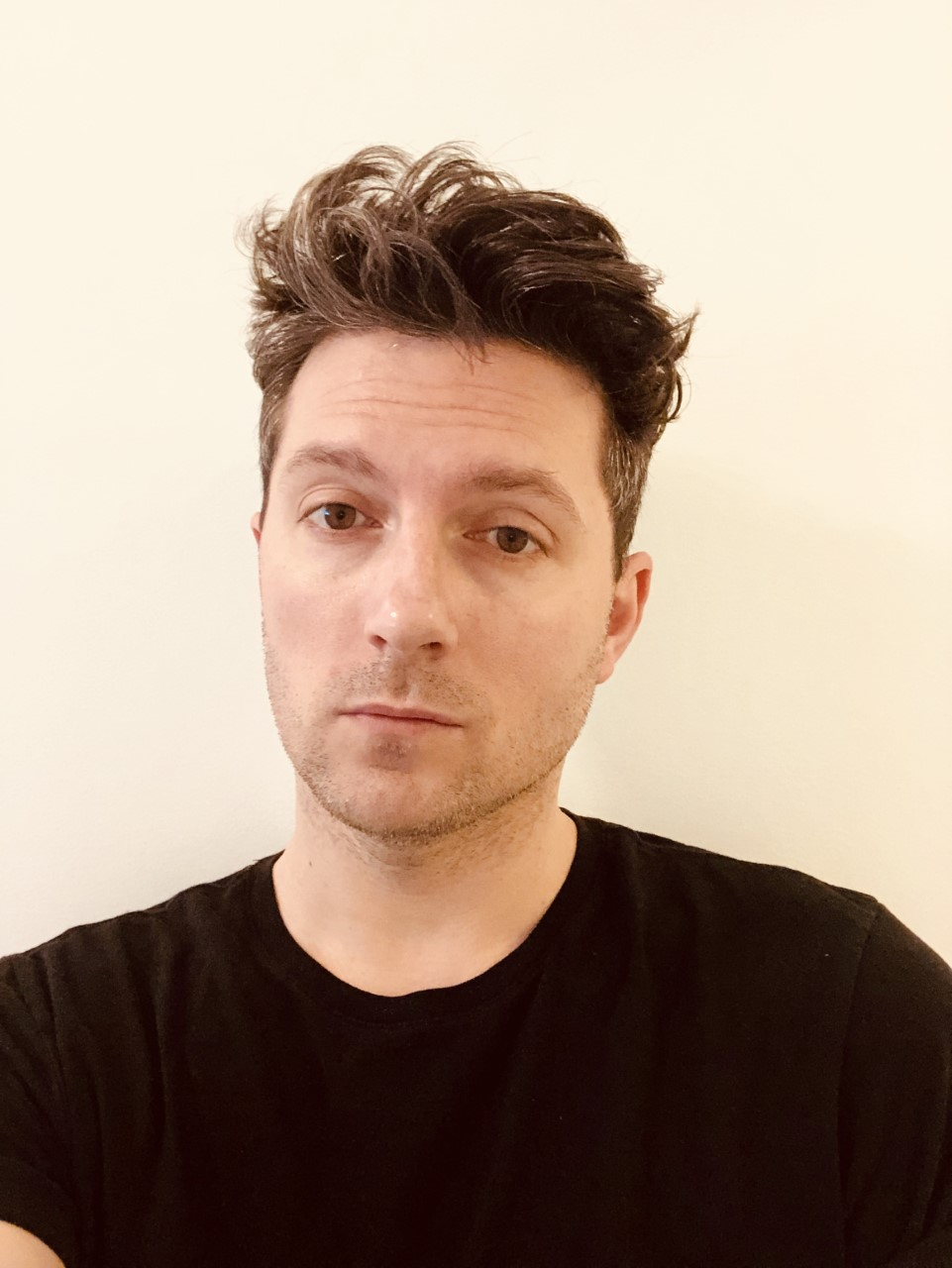
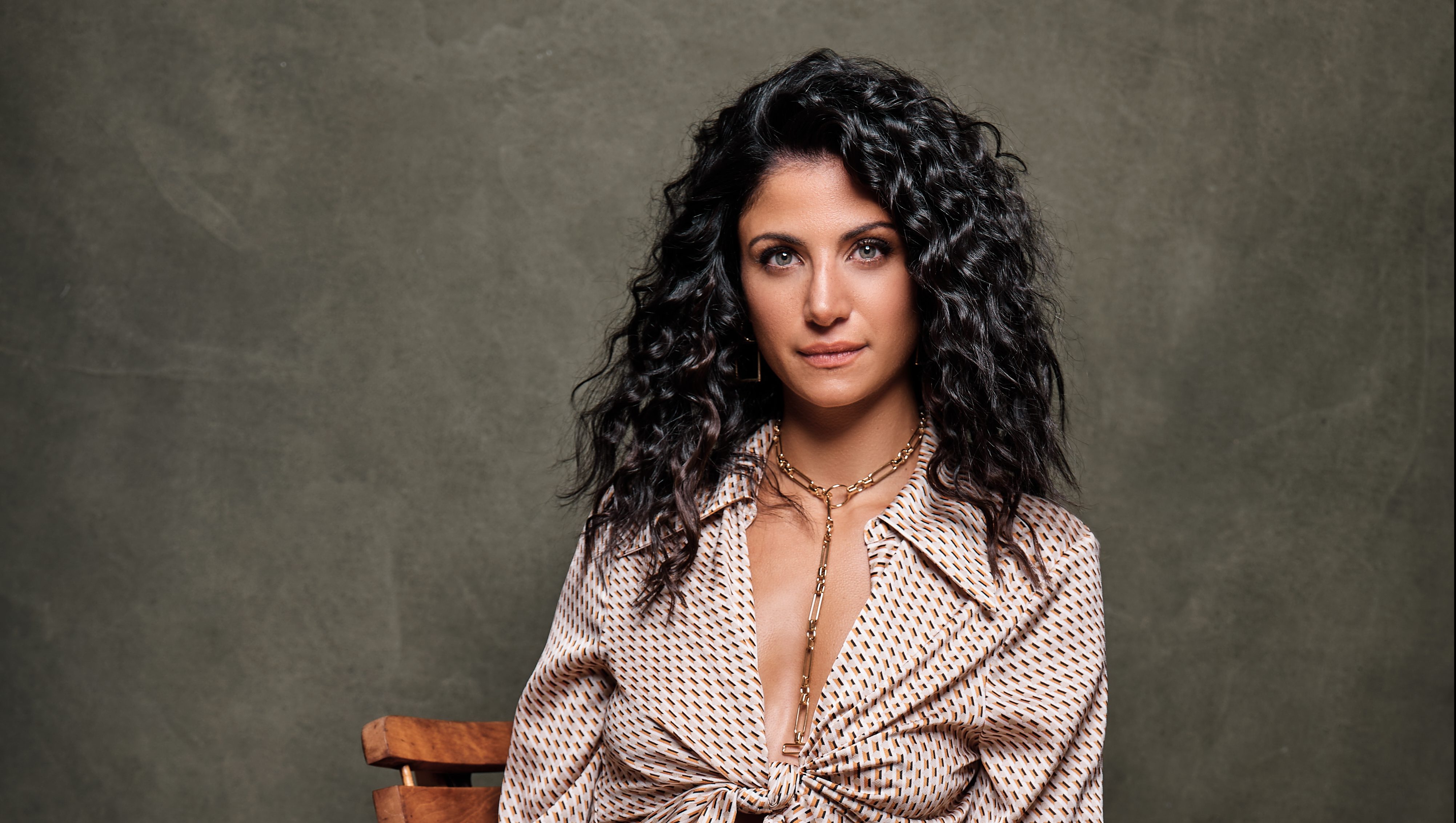
PHOTOGRAPHER FRANCIS HILLS
HAIR MARC MENA
MAKEUP LINDSAY CULLEN
STYLING RENEE RYAN
There’s a scene towards the beginning of The Many Saints of Newark in which New Jersey mobster Dickie Moltisanti (Alessandro Nivola) and his wife Joanne (Gabriella Piazza) are having dinner with Dickie’s father (played by Ray Liotta) and his new, much younger wife Giuseppina (Michela de Rossi). Dickie is clearly attracted to Giuseppina—you could cut the oedipal tension with a knife—and it’s up to Joanne, herself a knockout, to put on a brave face and ignore her husband’s wandering eye. Giuseppina is, after all, Dickie’s stepmother, as Joanne points out with a bright, easy laugh. But there’s real anxiety behind the joke, which she’s deployed, presumably, to deflate her husband’s interest in the younger woman.
That tension is at the heart of the character for Piazza, who makes her big screen debut in the Sopranos prequel. Set in the ’60s and early ’70s, the film, co-written by Sopranos creator David Chase, explores the formative years in which a young Tony Soprano (Michael Gandolfini, playing the role originated by his late father James) was influenced by the wise guys around him—particularly Dickie. But the life of a mob wife was no easier back then than it was for Carmella Soprano (played with exquisite fierceness and vulnerability by Edie Falco in the original HBO series), as Piazza points out.
Ahead of The Many Saints of Newark’s premiere in theaters and on HBO Max, Piazza joined GRAZIA USA on Zoom to discuss the film, joining the world of The Sopranos and the murky ethics of gangster movies.
Were you a Sopranos fan? Do you remember your first impression of the series?
So, I joined the hype later in life. I wasn’t allowed to watch The Sopranos growing up, or any crime drama due to my father’s profession. So, I serendipitously started watching The Sopranos right before I got this audition, and I remember being like, This is brilliant! This show, you know, put HBO on the map. The writing and the characters and this crazy lace of drama with this underlying dark comedy was fascinating.
Yeah, I’d read that your father was an FBI agent. What did he think of gangster movies?
I think, for him, it just sort of romanticized the world—where he was so immersed in stopping that world. And the fact that it’s heavy. There’s murder, there’s a lot of crime, and he was the antithesis of that. So, I think for him, letting his kids get immersed in that world while he was trying to stand for the opposite was a little iffy.
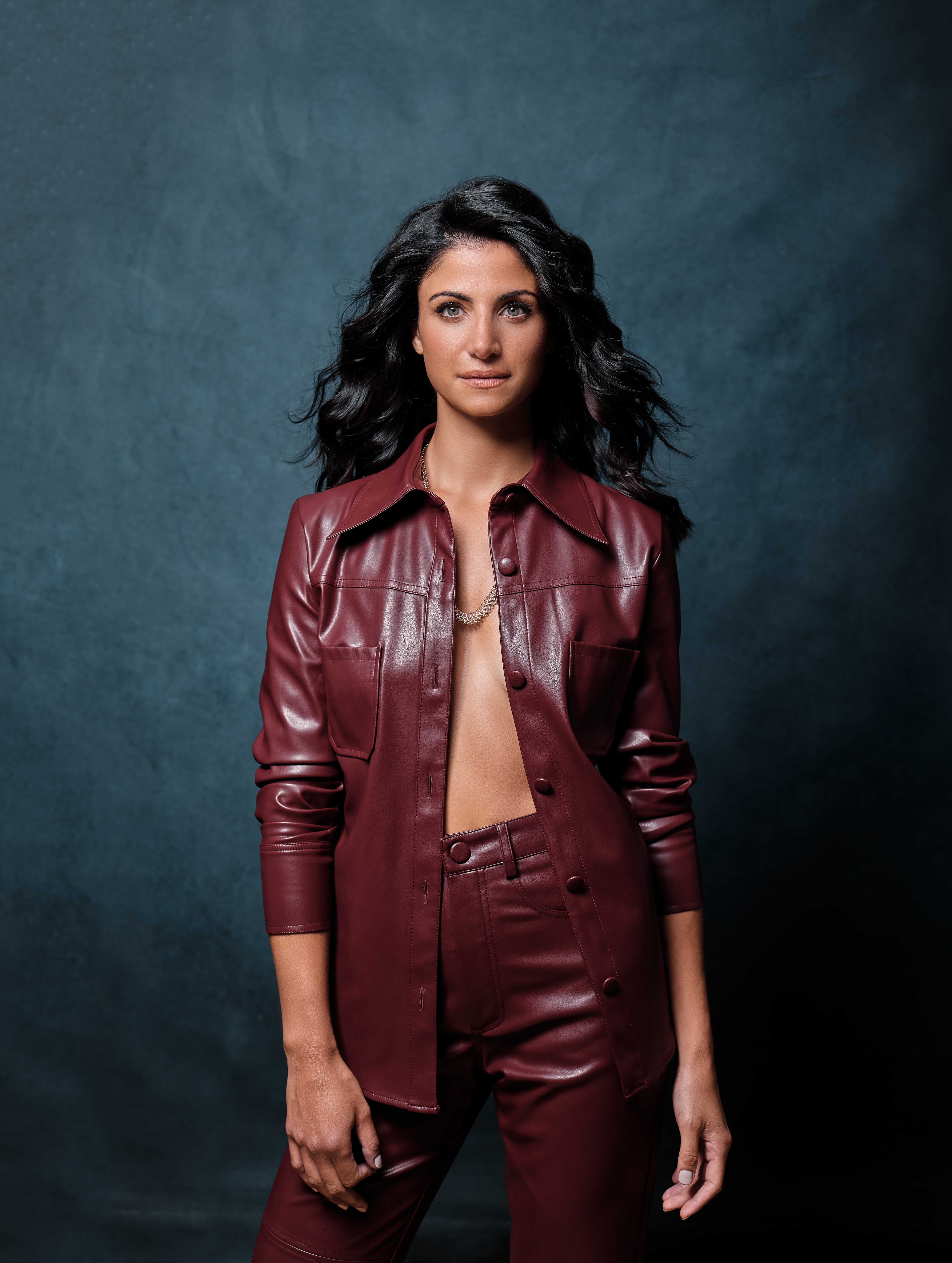
It’s so interesting to me that that’s part of this journey for you. If I’m perfectly honest, that’s always something that’s in the back of my mind as well: this discomfort with glamorizing a really brutal, amoral lifestyle. Now that you’ve seen the show and been a part of the movie, what’s your perspective on that?
It’s really funny, because I grew up in this large Italian and Dominican family. And my father representing the FBI, I had that influence. But I also had my mom’s very Italian side. I got the best of both worlds with my specific upbringing. With The Sopranos, it does romanticize it, but it doesn’t take away from the fact that it very much exists. The brilliance of The Sopranos is that, really, anybody in any job anywhere has a life outside of that specific label, right? It did such an interesting and brilliant job of creating that antihero that it’s inevitably wonderful. Is it necessarily the best thing to do to romanticize that specific group? [Laughs] I don’t know. But it happened and it’s real, and it went on, especially in that tumultuous time in the ’60s in Newark, that was so present. And it really shows you what was going on with all the redlining in New York and New Jersey. This was a real thing that happened. It romanticizes [crime] in a sense, but with the prequel it really just sheds a light on what really went on.
How would you describe Joanne at this earlier phase of her life?
Oh, man. Joanne… She’s quite alone! But also playing this matriarch, in a sense, of the Moltisanti household, and living up to that Italian wife narrative. At this point in her life she really wants a kid, and Dickie is out all the time. I actually had a wonderful conversation with our costume designer. We were talking about why Joanne is always in these bright, big, loud outfits and colors. And part of that was because that’s really what she had. Her husband would come home and she’d dress up to be ready for that dinner. Or she would go somewhere and it would be like, Oh my gosh, we’re going out! There’s this sadness to her. But also, when she gets a moment to speak, she speaks. She’s loud, she’s there.
Did you go back and watch any of the scenes from the series featuring Christopher and Joanne?
Yes, I did. And there was a lot to pull from. You see her and she’s not doing so well when you first meet her. She’s not the happiest. But I really actually pulled a lot from what Michael Imperioli did. Who would raise this child? What mother influence would create Christopher? So, it was a really interesting character study, because I had sort of a blank slate to play with. I learned so much from getting to play her.
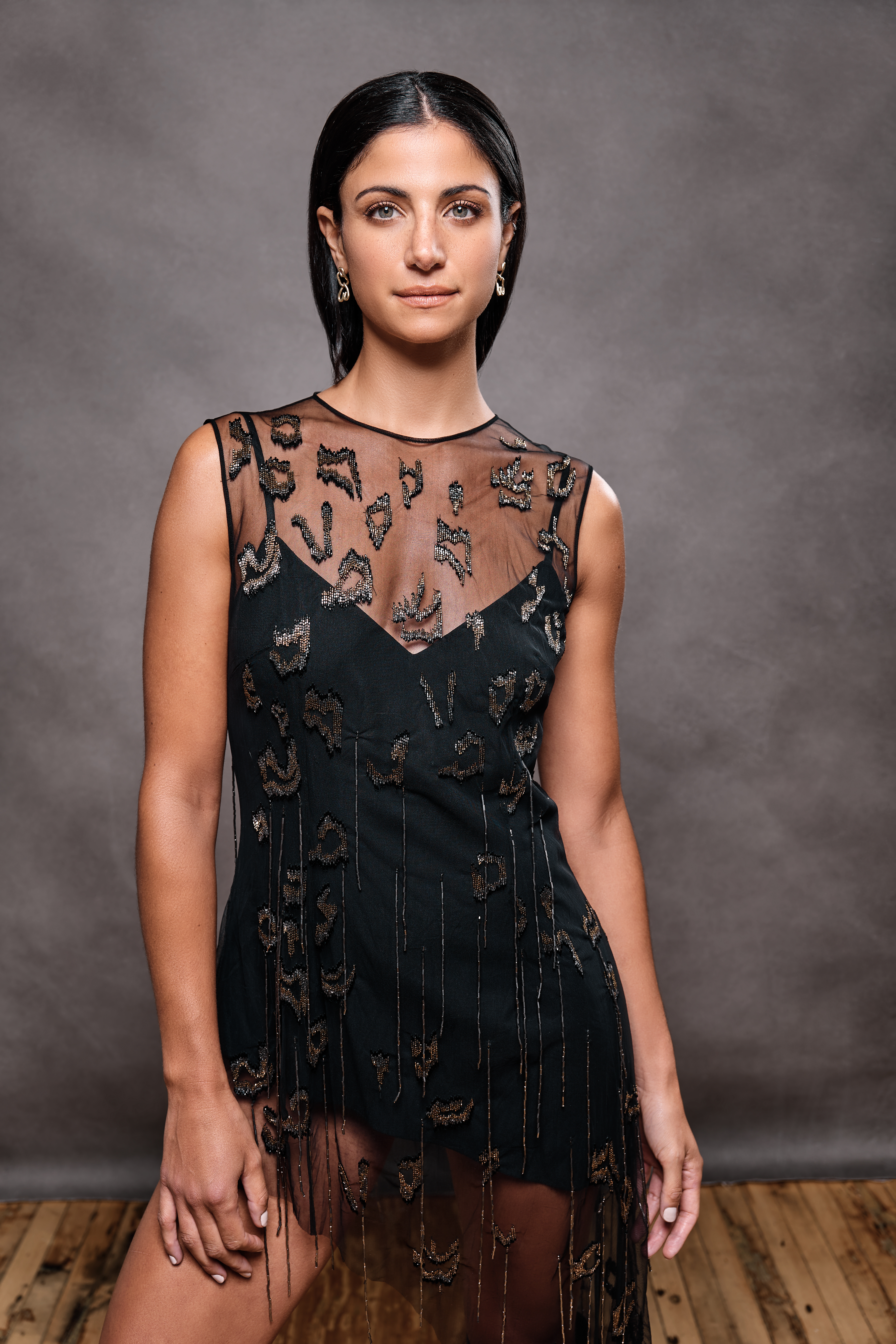
What’s her marriage to Dickie Moltisanti like?
[Joanne is] definitely trying to impress [Dickie], trying to stomach that there could possibly be goomars everywhere—but it’s just something that you had to deal with. At the end of the day he is coming home to [Joanne], and we do have a kid together. It’s playing up to that role. She loves him, but I think, just like a lot of women during that time—they knew that there was a mistress. But what are you gonna do? You’ve still gotta feed the kids, be there, live in that role. And that played into her sadness, but also her excitement when she was around him. She wanted to look beautiful. She wanted to be loved.
Tony and Carmella’s relationship was such a huge part of the series. Did you pull from that dynamic, between James Gandolfini and Edie Falco? Obviously, it’s a very different time, but I wondered if Carmella in particular influenced your thinking about how a wife exits in this world.
She’s my favorite part, actually. Edie Falco in this role on The Sopranos is such an inspiration. And I think I did pull a lot from her, in the sense of, like I said earlier, you know what’s going on, and how do you live with that, still be strong and stomach it? I think Edie just does an incredible job. That exterior, always smiling, but when they’re together it’s real.
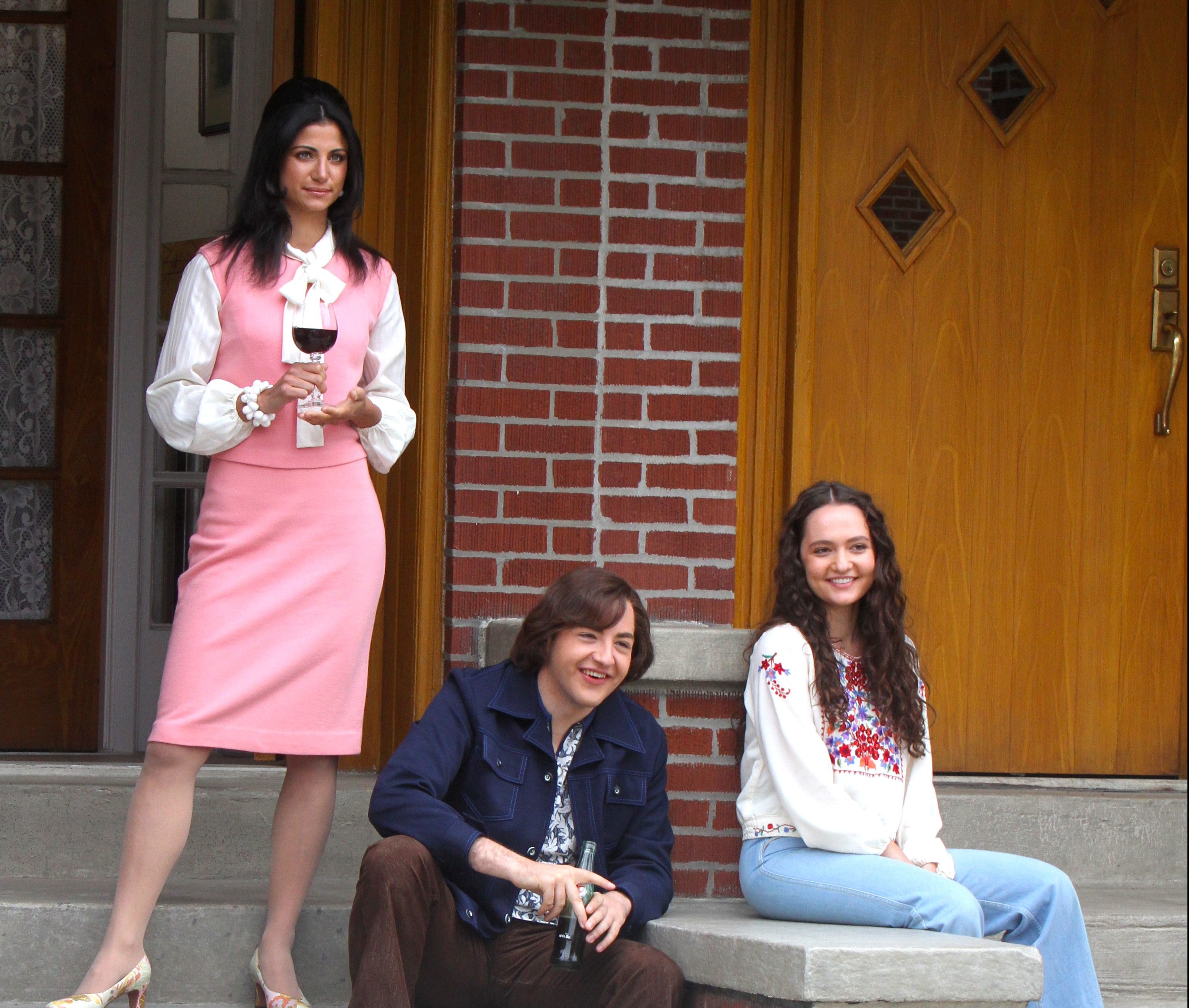
You’ve mentioned Joanne’s wardrobe and self-presentation. Was there anything else that really helped you find the character?
Yeah, the crew that made this world possible helps anybody, right? One of the scenes that didn’t make it in the movie, they shut down this road and had this massive parade that actually happened in Newark. A man was riding on an elephant—the guy was running for mayor. And I just remember seeing all the cars and the wardrobe and watching everybody around me on set, the crew, just make that happen. You sort of feel like, Well, sh*t! I better show up here! I better bring Joanne! So, when you’re immersed in that world, it happens inevitably.
And everybody’s smoking! Everywhere, throughout the entire film! Vera [Farmigia’s] holding a baby on her hip and she’s got a cigarette in her hand which is iconic! But it happened. You just sit into all of that, and you’re inspired by what’s going on.
What kind of conversations did you and the rest of the cast have with David Chase about why he wanted to revisit the world of The Sopranos and the story he wanted to tell.
He and Lawrence Konnor spoke a lot about how they were always enamored by this character, Dickie Moltisanti, who sort of shaped and created this person that we watched year after year in The Sopranos—Tony. So, he really wanted to sink his teeth into that narrative. And Newark, NJ, was a big part of David’s life growing up. He spoke a lot about that. And Alan Taylor, our director, gave us a lot of room to work with these characters, because you hadn’t seen them from this era before. Yes, you know who they are when you watch the show. But we were able to play with who they were in these specific times.
What does The Many Saints of Newark show us about Tony Soprano? How does it enhance the experience of watching or having watched The Sopranos?
I really, truly believe that this story shows the life of Tony Soprano in a different light. He’s not the heavy, hard, scary guy at all. It shows a different side to him. It shows us what series of events happened to create this person that we watched on television in the show. Growing up in this tumultuous time in Newark, NJ, with all of these crazy influences around him as father figures—being able to see that is just such a beautiful thing for true Sopranos fans to watch and understand why Tony is Tony.








